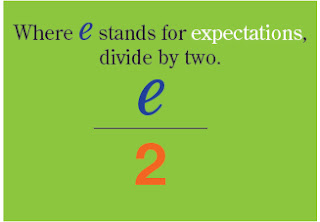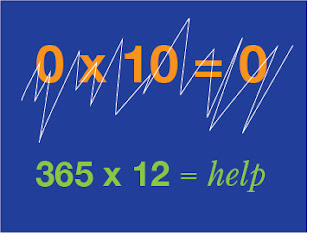Sunday I passed a milestone birthday. No big, round numbers this year; a different kind of milestone. Yesterday I reached the age my mother was when she died.
It was a sobering birthday. I've been dreading it for months. Staring my own mortality in the face. It's like standing on a precipice and stepping off into the unknown. Because I have no idea what life looks like after this year.
...
In the meantime, I
've been reexamining my mother's life—what she accomplished and who she became in her short time on earth—and feeling like I am the one who has fallen short.
I have a couple of Mom's journals in my possession. One of the first things that struck me as I scanned the pages of consistently precise handwriting was the
countless acts of service—there was literally something penned in on every single day that she did for someone else...and sometimes multiple acts in a single day. I was blown away. She had five children plus a Navajo foster daughter. Six kids she was feeding, clothing, schlepping to school, concerts, parties and back to school night. Six kids she was teaching to be responsible, be extraordinary, and behave. And yet she found (or rather,
made)
time to serve.
She was also this
incredible peacemaker. I remember how much time she spent on the phone counseling a sibling with a struggling marriage, helping a friend whose husband committed suicide, and trying to foster some unity between an estranged mother and daughter in our extended family. She was so good at seeing every side of the situation and helping people bridge the gap, go the distance, love, and forgive. She could listen endlessly, tirelessly, when others would have long given up. She was amazing at overlooking faults and choosing to love the most difficult and unlovable people.
Including me.
She had
unstoppable faith. Sometimes we would enter her bedroom and find her on her knees, and feel like we had interrupted a truly sacred space—an actual conversation with God. Her scriptures were worn threadbare. The leather binding had finally given way to decades of dedicated searching, and she taped up the spine with silver duct tape. (I love that image. So practical. So
her.) She was completely obedient, and had an unwavering commitment to build up His kingdom on the earth, both in large ways (like singing in the Tabernacle Choir and serving on the Sunday School General Board) and small, like following daily spiritual promptings. She knew where her anchor was, had her sights on the North Star, and never veered off course. Her own
steadiness anchored countless others.
She demanded excellence. From herself, and everyone around her. Setting a high standard usually meant that others also rose to the occasion. Whether it was coaching me for the national spelling bee, or helping her piano students master Suzuki Book One, she was so good at raising the proverbial bar.
She stayed active in her career. She was a very gifted musician, and never stopped performing and improving. Whether it was accompanying her father when he sang, performing in a chamber music trio, or conducting a choir, she was top notch. I drew this portrait of her (top) from a photo that was taken when she was directing a choir for the Franklin/Covey group. The most joyful and alive she looked in the last years of her life was the time she spent motivating those singers.
As her the end of her life drew near, it seemed as though she lived very close to the veil. She had become so strong, almost regal in her demeanor. Her heart had been refined and purified through her growth and her trials. She was even more humble and teachable, loving and giving. She became more and
more Christlike as she faced the prospect of finally meeting her maker.
....
As my dreaded birthday approached, a few people started reaching out to me to make plans. None of them knew how difficult this day might be for me. I mentioned to one friend how I was feeling, and she instantly shifted gears and came up with a wonderful, soul-filling plan that sounded perfect to me.
Another friend—from our beloved Pasadena area, who we've been close to for over two decades—invited us to dinner at her home on my birthday. (My husband gingerly asked if that's what I wanted to do, and I assured him YES!) She is a fabulous cook, and invited just our immediate families and one other very close friend. It was exactly the sort of small gathering I love, filled with people I love. It was sheer heaven. When this friend suggested a talent show, I'll admit I cringed. But honestly, everyone did something completely unexpected, and we all enjoyed ourselves so much. I mustered the courage to read aloud a couple of blog posts — most notably
this one, to be a little bit vulnerable and let people know what I was dealing with this year, and then
this one, to end on a lighter note. It was one of my favorite birthday celebrations ever. I didn't just survive my ominous birthday, I thrived.
That evening gave me an entirely new perspective on living after the age my mother died. I've decided to see every day that I outlive my mom as a gift. One more day to work at becoming more like she was: More service-oriented and eager to lift others, more of a peacemaker, a better listener. One more day to strengthen my faith, and bolster those around me. One more day to demand excellence of myself and my students. One more day to excel in my career. One more day to be kinder, wiser, stronger deeper; to be pure, to be humble and teachable. To be like my mother. To be like Christ.








































